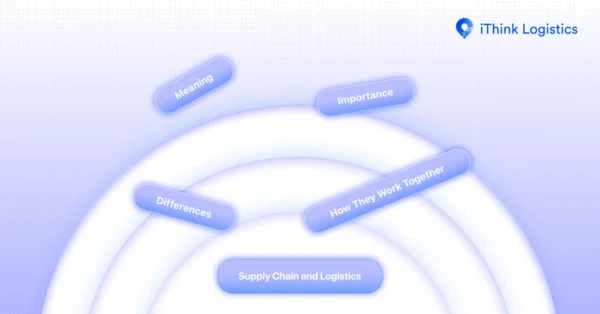International shipping plays a vital role in keeping global trade flowing smoothly. However, there exists a multitude of challenges faced by international trade logistics players today.
From container damage prevention to international shipping regulations to cross-border shipping issues to the unfortunate occurrence of lost goods, the world of international shipping can be complicated.
Challenges in International Shipping
In the age of digital entrepreneurship, e-commerce businesses have harnessed the power of the Internet to reach customers far and wide. Yet, behind the seamless virtual storefronts are challenges that entrepreneurs must navigate. Some of these are as follows
1. Delays
International shipping involves multiple stages. Efficient packaging practices, customs clearance delays, international documentation requirements, and transportation.
Delays at any point in the process can occur due to weather conditions, political unrest, or logistical inefficiencies. These delays can frustrate customers, affect inventory management, and disrupt business operations.
2. Lost Goods
Despite expedited shipping methods and stringent tracking systems, the unfortunate reality of lost goods persists.
Mishandling during transit, theft, or miscommunication can result in packages disappearing without a trace. Such incidents not only lead to financial losses but also damage customer trust and brand reputation.
3. Customs and Regulatory Compliance
Each country has its own unique customs and import regulations, which can be complex and time-consuming to navigate.
E-commerce businesses must invest significant efforts in understanding and complying with these regulations to avoid customs clearance issues and potential penalties.
4. Shipping Costs and Pricing
International shipping costs can be exorbitant, posing a challenge for e-commerce businesses to strike a balance between competitive pricing and profitable margins.
Calculating accurate shipping costs, managing customs duties, and negotiating favourable contracts with shipping providers are crucial steps to overcome this hurdle.
5. Customer Service in International Shipping
Maintaining clear and consistent communication with customers throughout the shipping process is vital.
Language barriers, varying time zones, and lack of real-time tracking updates can create frustration and dissatisfaction among buyers, impacting their overall experience.
Understanding the Causes of Delays and Lost Goods in International Shipping
In the international shipping industry, a labyrinth of challenges can impede the timely delivery of goods and, in some unfortunate cases, result in lost shipments.
Understanding the underlying causes of delays and lost goods is essential for businesses and individuals seeking to navigate the complexities of cross-border logistics.
1. Meticulous process of customs inspections
Customs authorities in different countries enforce rigorous checks to ensure compliance with import regulations, which can lead to unforeseen delays as shipments await clearance.
2. Documentation errors
Inaccuracies or omissions in paperwork can bring the entire shipping process to a screeching halt. Missing or incorrect information on invoices, certificates, or shipping labels can trigger lengthy delays while the errors are rectified.
3. Weather conditions
Proper weather conditions also play a role in impeding the smooth progression of global shipping. Adverse weather events such as storms, hurricanes, or heavy snowfall can disrupt transportation networks, leading to shipment delays.
Coping Strategies for Dealing with Delays and Lost Goods in International Shipping
While international shipping challenges may seem overwhelming, with the right insights and strategies at your disposal, businesses can turn setbacks into opportunities for growth.
By employing effective coping strategies, businesses can navigate the challenges that arise from global shipping and minimize disruptions.
1. Robust Supply Chain Planning
A well-designed and adaptable supply chain forms the backbone of successful international shipping.
By conducting thorough research, selecting reliable logistics partners, and developing contingency plans, businesses can proactively address potential delays and minimize their impact.
2. Enhanced Communication and Visibility
Maintaining clear and consistent communication with shipping carriers, suppliers, and customers is crucial.
Utilizing advanced tracking systems, real-time updates, and proactive notifications can enhance visibility and transparency, enabling all parties to anticipate and address potential delays in a timely manner.
3. Diversified Shipping Routes and Carriers
Relying on a single shipping route or carrier can increase the vulnerability to disruptions. Diversifying shipping routes and carriers helps distribute risks and provide alternative options in case of delays or unexpected circumstances.
Conclusion
In the ever-evolving landscape of international shipping, e-commerce businesses must equip themselves with effective coping strategies to tackle delays and prevent the loss of goods.
By embracing robust supply chain planning, enhancing communication and visibility, diversifying shipping routes, and securing comprehensive they can minimize the impact of delays and navigate the challenges of global shipping with resilience.
These strategies empower businesses to maintain customer satisfaction and protect their bottom line.
With a proactive approach and a focus on continuous improvement, businesses can turn challenges into opportunities, ensuring smooth sailing and success in the dynamic world of international shipping.













Leave a Reply